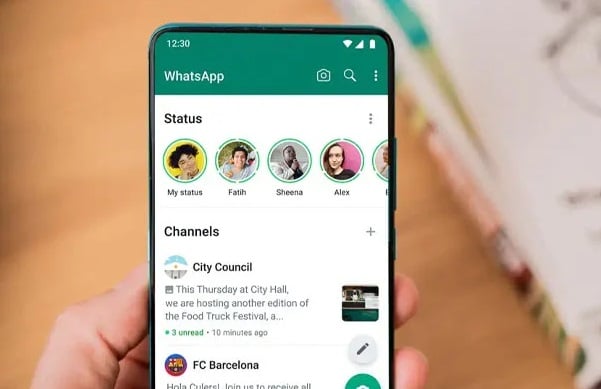WhatsApp launches broadcast tool ‘Channels’
BY STANLEY ALIEKE
Someone called my attention to a video from a lawyer educating people that it is a crime and breach of privacy to screenshot a private conversation you had with another person and share it on a social media timeline.
It happens regularly on WhatsApp, Twitter, Instagram and even LinkedIn where users publish a private conversation they had with another person. The person at the other end of the conversation can commence a legal action against you for breach of privacy.
Section 37 of the constitution provides thus: “The privacy of citizens, their homes, correspondence, telephone conversations and telegraphic communications is hereby guaranteed and protected.” This section is the fons et origo for the protection of an individual’s privacy in Nigeria thereby making it a crime when a person’s privacy has been breached.
Advertisement
Taking a screenshot of a private conversation between you and another person without that person’s consent can be illegal and posting a private conversation between you and that person or even disclosing the conversation to a third party can get you sued for breach of privacy.
But this rule of the illegality of publishing a private conversation is not a rock solid one just as it is said that in every rule there must be an or some exceptions, the same goes with this rule.
There are some instances where you can leak a private conversation without incurring any criminal liability. Truth be told, the legality or otherwise of publishing recordings of conversations/interactions in any medium is based on whether there is a reasonable expectation of privacy which is to be judged by the content and context of the conversation and whether it would be highly offensive and damaging to a reasonable person.
Advertisement
So the question posed in determining the illegality of publishing a private conversation is whether there is a reasonable expectation of privacy in the conversation. The answer to this question will be determined solely by the content or context of the conversation.
As a petitioner bringing an action against another person for publishing the content of the private conversation, the court in determining if you have a reasonable cause of action or not will consider amongst other things;
a) whether there was a reasonable expectation of privacy in the conversation
b) whether the content would be highly offensive or damaging
Advertisement
C) whether the content or the focus of the conversation is criminal in nature or not.
For instance, if two adults engage in sexting and sharing of their nude pictures and videos with each other, it will reasonably be expected that the content of such conversation should be kept away from the third eye and publishing such a private conversation will be highly damaging to the other person. So instances like this, a right to legal action may arise.
As a takehome, if you must publish a private conversation for whatever reason, consider the potential damage it might cause to the person at the other end, think about the potential for the post to go viral, and think about the potential for the succeeding crimes relating to the posting of the messages.
After considering the above, if you still want to go ahead to publish such a private conversation, be sure to blur out any identifiable information of the other person because sharing private information of another person is a crime on its own.
Advertisement
Stan Alieke is a legal practitioner. He can be reached via [email protected]
Advertisement
Views expressed by contributors are strictly personal and not of TheCable.
Add a comment






